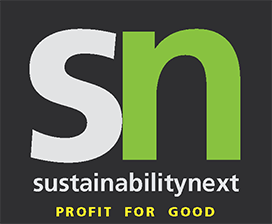The Paris Climate Change Summit appears to be highly focused on what nations need to do as their medium to long term strategy to rein in carbon emissions. The private sector has expressed strong concern that the national governments are not engaging the private sector deeply enough in policy making. Here’s a random pick of thoughts from the recent survey of CEOs Accenture did in collaboration with UN Global Compact.
In the first of its kind CEO Study, the world’s largest program of CEO research on sustainability, business leaders have called for urgent and bold action from governments and policymakers to unlock the potential of the private sector. Surprisingly, 91% of CEOs see climate change as an urgent priority for business, and a clear majority call for urgent action from policymakers to unlock growth and innovation in the private sector. To unlock the potential of the private sector, business leaders are looking to close the gap between ambition and execution. Business leaders identify investment in low-carbon technologies and solutions as the third most important leadership behavior on climate change.
Through committing to engage responsibly on climate policy, companies agree to:
- Identify the company’s climate change risks, opportunities and policy influences: To understand opportunity, a responsible company will tune into the outside world and be open to understanding the implications of climate change.
- Align words with actions, ambitions and influences (both direct and indirect): To ensure consistency and accountability, a responsible company will take steps to review and align its direct and indirect influences on climate policy.
- Report on policy positions, influences and outcomes: To ensure transparency, a responsible company will disclose information about how it views climate policy and what it is doing (or has done) to help advance policies that reflect that position.
Caring for Climate, in partnership with CDP, the World Resources Institute (WRI) and WWF, calls on companies to align corporate voluntary greenhouse gas reduction targets with climate science, demonstrating how companies that follow this path can safeguard future profitability through driving innovation, enhancing competitiveness, building their credibility and reputation, and influencing public policy frameworks. Respondents highlight inconsistencies with trade associations as one of the greatest challenges to responsible engagement on climate policy: just 45% of respondents (as few as 38% in North America) believe the industry associations reflect their views on climate policy. By providing an economic signal to high emitters to decide whether to reduce emissions or to continue business as usual at higher costs, a carbon price can stimulate clean technology and market innovation, fueling new, low-carbon drivers of economic growth
Business leaders are also seeking clarity from governments on what to expect: 82% of Caring for Climate CEOs believe business needs a clear roadmap and timeline from governments on policies related to future carbon pricing mechanisms.
Go Green, Go Rich
In the US, the nine states that participate in the Regional Greenhouse Gas Initiative cut their emissions by 18% and grew their GDP by 9.2% in 2009–13; emissions in the remaining states fell by just 4%, with GDP growth of 8.8% over this same period.






